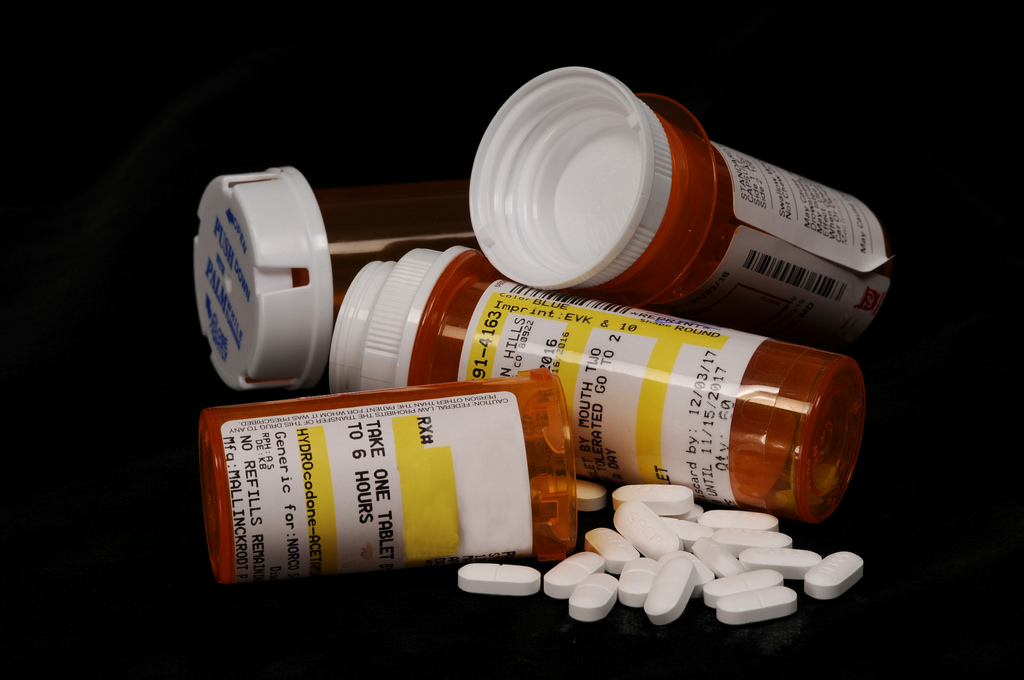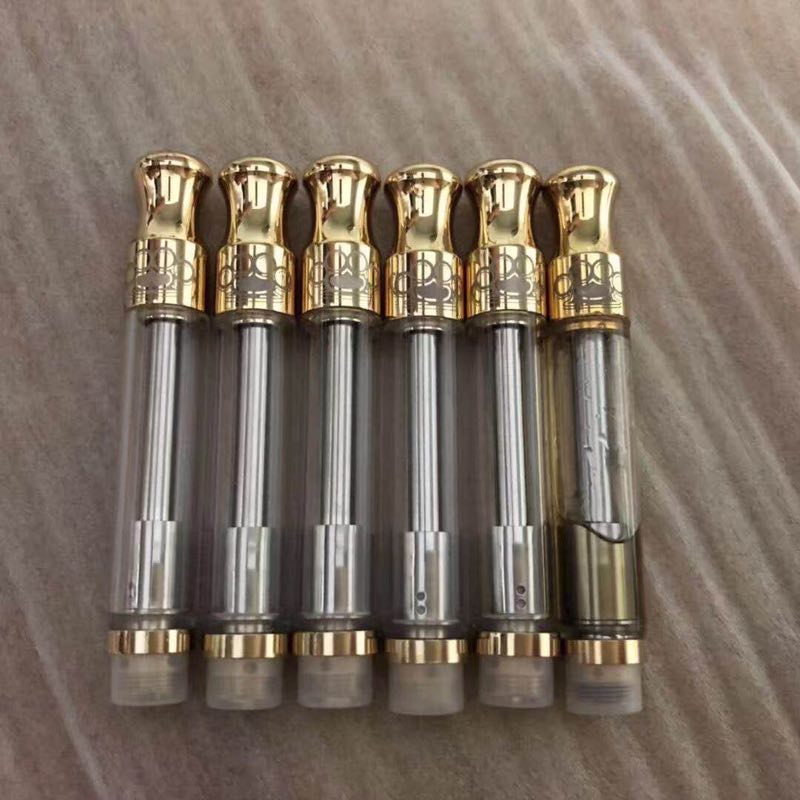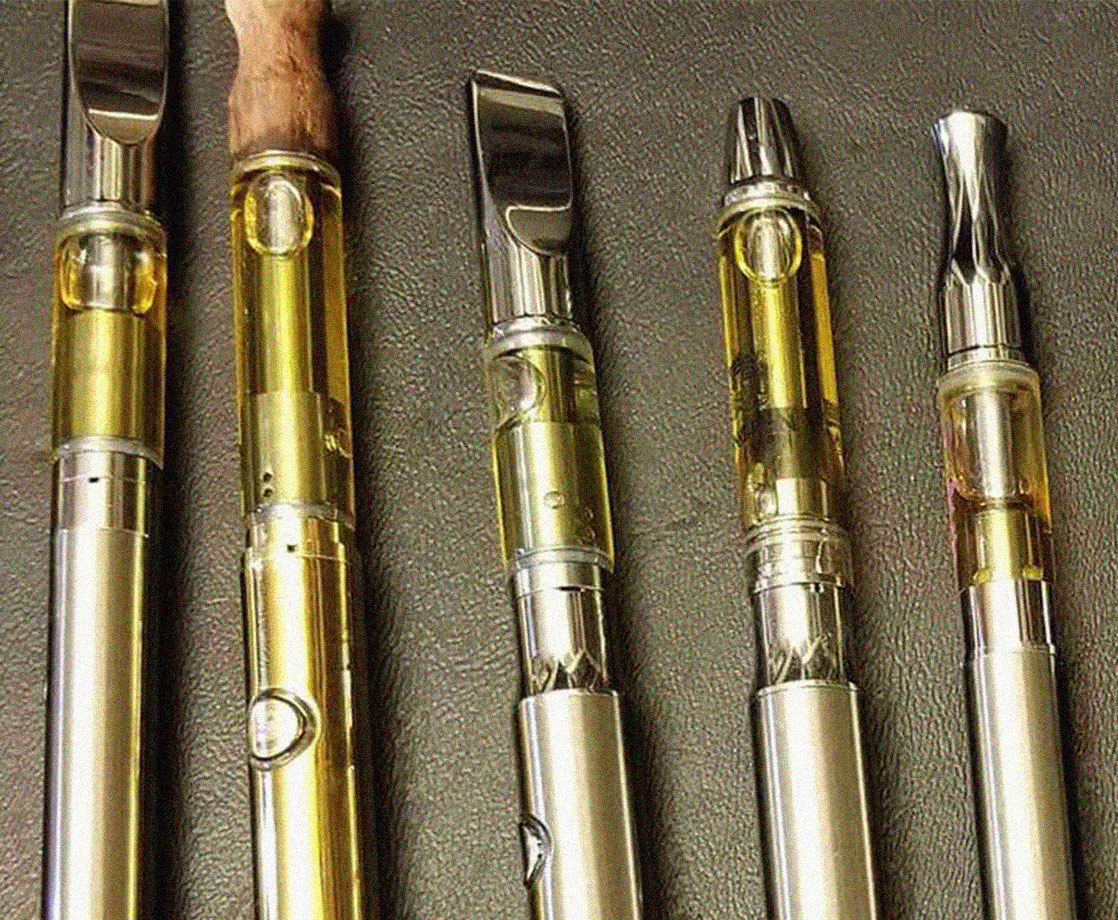Lead image via
Global cannabis prohibition has long prevented the scientific community from thoroughly researching this widely-misunderstood plant, but as more countries, states, and territories embrace legalization, new studies exploring every aspect of marijuana are being published on a weekly basis.
One new study is reporting that young adults in the country's most liberal states are more likely to smoke weed than their counterparts in conservative states – but despite this increased use, teens in liberal states are less likely to show signs of marijuana dependence.
A growing body of evidence is finding that medical marijuana can help curb opioid use and abuse, and last week another new study has confirmed these findings. A similar study found that medicinal pot can help patients cut back on anti-anxiety medication, as well.
Another team of researchers compared subjects' THC levels after smoking or vaping weed, and concluded that vaping was the most effective delivery method for consumption. Vaping is not without risk, however, as several California testing labs have recently discovered dangerous amounts of lead in commercial vape cartridges.
And in other news, Massachusetts’ first legal pot stores have sold $24 million of product in their first two months of doing business, and the UK's first-ever legal cannabis farm has been given permission to break ground. Let's dig in to the week in weed news.
.jpg)
Young People in Liberal States Smoke More Pot, But Are Less Likely to Become Dependent
A new study published in last week's edition of the International Journal of Drug Policy has found that young people living in liberal states are more likely to smoke weed, but less likely to show signs of abuse or dependence. Researchers from Columbia University's Mailman School of Public Health cross-referenced self-reported drug use data from the National Survey on Drug Use and Health with data from the State Rank on Policy Liberalism Index, which classifies states as liberal, moderate, or conservative based on their political policies.
The study found that “people in both liberal and conservative states are consuming more marijuana,” but the percentage of 18-25 year olds using weed in liberal states grew from 33 to 37% between 2004 and 2012, while pot use by young adults in conservative states only grew from 25 to 26%. But despite this increase in use, symptoms of cannabis abuse or dependence among these young adults declined from 20% to 17% in liberal states, and from 22% to 18% in conservative states.
“Our study highlights the need for researchers and public health professionals to distinguish between cannabis use and cannabis use disorder when interacting with patients at the individual level and when developing primary prevention strategies and interventions at the population level,” senior author Silvia Martins, MD, PhD, said in a statement. “This line of research not only helps identify how state-level policies as a whole impact cannabis use outcomes, but ultimately supports the development of more health-promoting policies.”

Medical Marijuana Helps Patients Cut Down On Anti-Anxiety and Opioid Medication, New Studies Find
Over the past several years, numerous studies have found that medical marijuana can be an effective replacement for addictive opioid painkillers, and another new study is backing up these claims. The study, published last Friday in the Journal of General Internal Medicine, analyzed prescription data from 5 million medical patients between 2006 and 2014, and found that legalizing medical cannabis was associated with lower odds of opioid use.
Specifically, the rate of opioid use in states with legal medical marijuana was 19.3% — less than the 19.9% rate reported in prohibition states. Similarly, the rate of chronic opioid use was slightly lower in MMJ-legal states, at 1.8%, compared to 1.9% in states that still prohibit medical marijuana.
“In states where marijuana is available through medical channels, a modestly lower rate of opioid and high-risk opioid prescribing was observed,” the researchers concluded. “Policy makers could consider medical marijuana legalization as a tool that may modestly reduce chronic and high-risk opioid use.”
Another study has found that medical marijuana may also be effective at helping wean patients off other potentially dangerous pharmaceutical drugs. A new Canadian study has found that a significant number of patients were able to stop taking anti-anxiety medication within six months of beginning a medical marijuana program. The study, published in Cannabis and Cannabinoid Research, looked at 146 patients who had previously been taking benzodiazepines – sedative drugs often used to treat anxiety, insomnia, and seizure disorders.
Benzodiazepines “are associated with several well-known adverse effects,” the researchers note, including “lack of concentration, dependence, tolerance, overdose, and addiction.” The study reports that after only two months of using medical cannabis, 30.1% of patients were able to quit using benzodiazepines completely. Six months into the program, almost half of all patients (45.2%) were able to quit using these dangerous medications.
Due to the limitations of this small study, the researchers note that they cannot fully recommend cannabis as an alternative to benzodiazepines, but lead author Chad Purcell told The GrowthOp that he hoped this study would inspire other researchers “to advance current cannabis understanding as we collect stronger efficacy and safety data that will lead to responsible policy and recommended practices for use.”
.jpg)
Researchers Discover That Vaping Can Deliver More THC Than Smoking
Last month, an intriguing new study reported that subjects who vaped weed got noticeably higher than subjects who smoked the very same flower. The study did not provide any insight into exactly why vaping got the subjects higher, but the same team of researchers just released a follow-up study that digs deeper.
The new study, published in the Journal of Analytical Toxicology, explains that although “vaporization is increasingly popular as a method to self-administer cannabis… few controlled laboratory studies of cannabis have used vaporization as a delivery method.”
A team of researchers from Johns Hopkins University in Maryland and the Research Triangle Institute in North Carolina asked 17 adults to either smoke or vaporize cannabis flower containing different concentrations of THC. Eight hours after the subjects got high, the researchers checked the concentrations of THC in their blood and saliva. Subjects who vaped were found to have higher levels of THC in their blood, leading the researchers to conclude that “vaporization appears to be a more efficient method of delivery compared with smoking.”

California Labs Are Discovering Toxic Amounts of Lead in Vape Cartridges
Although the previous study might inspire pot lovers to run to the nearest dispensary and load up on vape cartridges, new findings from California testing labs advise caution. As of January 1st, the Golden State is requiring all vape cartridge manufacturers to have their products tested for heavy metal contamination, and several testing labs are reporting that some of these vape carts contain a dangerous amount of lead.
“We’ve had a number of people that I’ve run into who are saying that there’s issues with cartridges passing — primarily in heavy metals,” David Hua, a board member of the California Cannabis Industry Association, told Leafly.
It is believed that this lead contamination is coming from the metal parts of the vape cartridges themselves, as many Chinese foundries mix lead with other metals in order to make parts more moldable. Josh Wurzer, founder of testing agency SC Labs, suspects that the cannabis oil may be getting contaminated by the metal parts of the cartridge. “Maybe some oil is picking up some of the lead and failing there,” he explained. “We have tested actual empty cartridges and confirmed a number of ‘over the limit’ hits for lead.”
There is no safe level of exposure to lead, and even the tiniest trace amount of the metal can cause long-term health effects. Many testing labs use different methods to test for contamination, and some products that are failed by one lab can end up being approved by another. Unfortunately, some cannabis producers engage in “lab shopping” — having their products tested at several labs and then cherry-picking the most favorable results — which means that there is no guarantee that a lab-tested vape cart is truly lead-free.
To make matters even worse, unscrupulous international counterfeiters are also flooding the country with fake vape cartridges, which could have higher concentrations of lead, or be filled with synthetic cannabis and/or literally any other chemical. California cannabis producers are expecting that Chinese manufacturers will be able to provide them with completely lead-free carts within the next few months, but until then, it may be wisest to consider vaping flower instead of a potentially-toxic vape cart.
.jpg)
Massachusetts Has Sold $24 Million of Legal Weed in Just Two Months
Last November, Massachusetts' first two legal recreational pot stores opened their doors, and cannabis consumers from all along the Eastern seaboard flocked to the Bay State to stock up on legal pot. Since then, six more legal retailers have opened their doors, and demand has shown no sign of slacking. In the first two months of sales, retailers moved $23.8 million of weed, according to the state Cannabis Control Commission (CCC).
Revenue is expected to grow even further as the state expands its operations. Last week, the CCC issued its 100th adult-use cannabis business license, covering all aspects of the industry from cultivation to infused product manufacturers to testing labs. Regulators also greenlit three more retail stores and expect that around four-to-eight new retailers will be authorized to open their doors every month. Once the industry is in full swing, sales could top $1.5 billion annually, Marijuana Business Daily estimates.
.jpg)
The UK's First Legal Cannabis Farm Set to Open at a Secret Location
The UK's first-ever legal cannabis farm has just been granted permission to open in a secret countryside location. London-based Sativa Investments is on track to open a seven-and-a-half acre greenhouse that can produce up to eight tons of cannabis a year, which will be harvested for CBD and other medical marijuana products.
"We have a test facility here which will allow us to grow different strains of cannabis to assess with our laboratory here the cannabinoid content from each plant strain, but also we're interested in testing different forms of hydroponic mediums and we're also looking at different forms of lighting,” Sativa CEO Geremy Thomas said, according to The Daily Record.
The new greenhouse will be located in rural Wiltshire, but the exact location will remain undisclosed due to a prior incident. Last year, when Sativa was growing a test crop of industrial hemp, a group of “local hoodlums… spotted the fields from afar and started dancing around with their cameras and published that on Facebook, which prompted us to plough the crop into the ground very quickly," Thomas explained. The UK Home Office finally legalized medical marijuana last July after decades of prohibition, thanks in part to the widely publicized story of a young boy who nearly died after police seized his CBD medicine.











